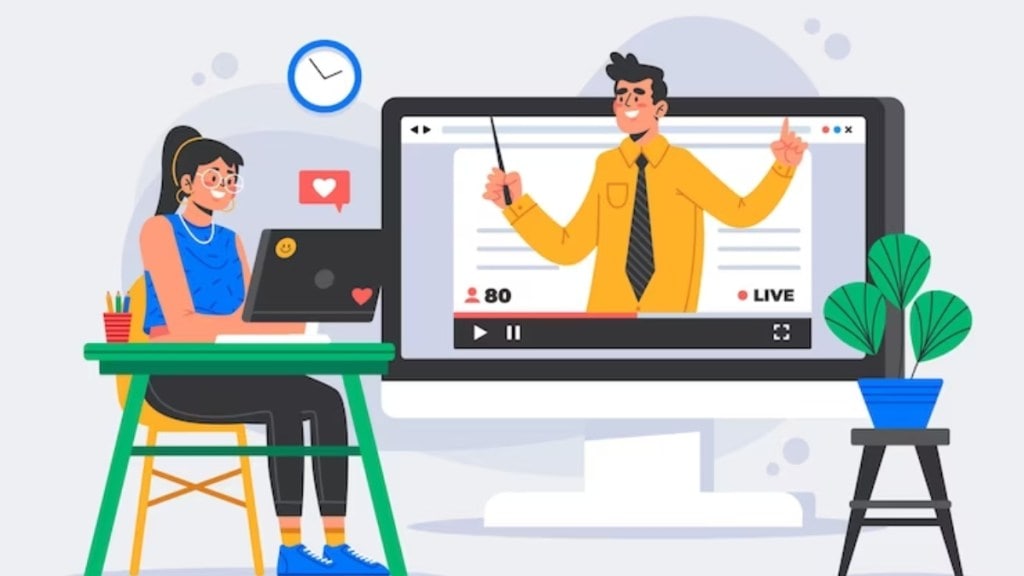Giridhar LV, founder of Nuvepro Technologies shares his views on opportunities and challenges of the education system in India with FE Education Online.
What is the best thing about today’s education system?
Today’s education system which comprises students attending schools/colleges/universities is a carryover from the age-old tradition of learning from the masters or the guru-shishya tradition. However, not all teachers or professors have chosen this profession as their first choice, and it reflects in their teaching. That said, we have one or two teachers who make a lasting impact and stay with us for the rest of our lives. I can remember at least three teachers for the way they taught us, engaged, and energized the classroom.
In such setups, we are also learning interpersonal skills. You will learn to make new friends, some enemies, learn to patch up and move on in life. Since we spend almost a third of our lives in school, this is also the place for lasting friendships. If there is a healthy mix of study and extracurricular activities, then apart from studies, you will also learn about your talents, be it in art or sports. Sports and extracurricular activities build camaraderie too. Anyone attending sports meet or any inter-school competition will know the kind of energy that it brings to the players and the audience.
What is the one thing you would like to change in the system?
Most of our education has been one-way traffic, a teacher is expected to teach you, give you homework, and then evaluate your progress with tests. However, this is all one-way traffic. All these activities only serve to build up our foundational understanding of a subject, but they don’t serve to reinforce it. For reinforcement, the students will need to solve open-ended questions that are real-world. Students do get to work on a few projects, and at least in lower classes, we see kids carry charts filled with photos or decorative text. However, the percentage of such activities reduces as we go into higher classes and into university.
In University, the emphasis should be on “Learn by doing” and it should be at least 20% to 30% of coursework. This learning by doing can be achieved through internships in the industry. These internships are the only way to reinforce the learning of foundational concepts that is learnt in the university. You also get to learn the application of what has been taught, and how to work in a professional environment.
What is the role digital has played in the evolution of the education system?
Digital is a broad word, but in my understanding, it’s a way to provide students with access to content that is not in printed form and confined to the knowledge within the four walls of a classroom. Digital provides students all over the world access to the best content, teachers, and industry expectations. Getting such access helps students and teachers solidify their understanding of the foundational concepts in math, science, arts and even sports. While your teacher may be good, there are teachers worldwide who are better at explaining these concepts, and it always pays to learn from the best.
Another place where digital helps is in the real-world application of this learning. Consider sports and one of them – is badminton, what’s the best way to take that overhead smash, you may find a few videos about it. And math, where does this equation get used in real-life? Have you heard of the basis of fractals and those symmetric images? And that Shortest Path algorithm, and how it applies to robots in an Amazon warehouse?
What has been the disadvantage of digital in education?
There are a few disadvantages that can be attributed to digital education: Digital can end up creating lonely learners. Staring at screens and not having a human be part of the learning environment to lend that helping hand to move along leads to poor learning outcomes.
Not everything available on the internet is true. For the young minds that are super absorbent of anything new, it takes a few wrong clicks and passionate speakers explaining something totally wrong to take us down the wrong road. Examples are all those shortcuts to solve a math problem, or just learning to solve that one physics problem that has appeared in the exam multiple times or a magic cure for a disease. Since all this so-called “knowledge” is one-way traffic, validate before you trust anything out there.
What is the career advice you would like to give to students?
The career advice for students is not to always rely on books, teachers, and set curricula to get ahead and be prepared for professional life, and here are a few ways to do it: Be part of one or more clubs in your university or institution. While at least one of them should be aligned with your degree, another should be a sport or an art club. While the clubs aligned with your degree give you a career advantage, the art or sports club goes towards building your abilities to work within teams.
Generate content regularly. This content can be in the form of code that is available in a Git repository, articles on Medium or SubStack, and maybe even a YouTube channel. When a potential employer is evaluating you, it’s only degrees that count but how you are applying these. Take up an internship with an institution, the more the better. This is probably the only way for you to figure out what you are good at and would like to work on for a considerable time in your professional life. And lastly, leverage your alumni network. The college alumni network is a significant bond that will help you as you progress in your career.
